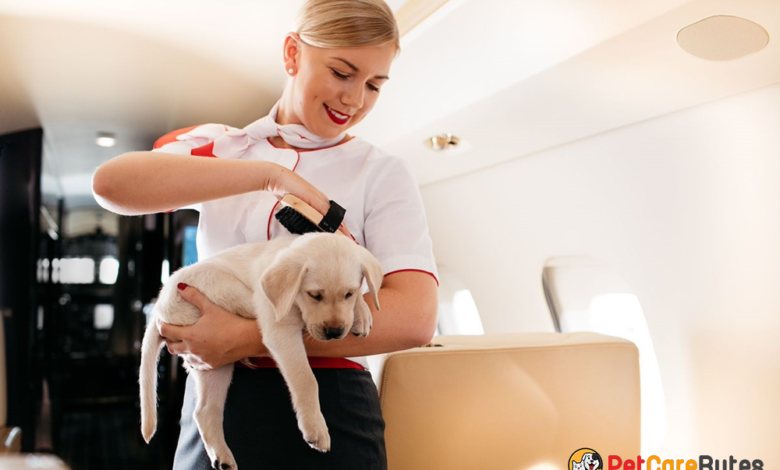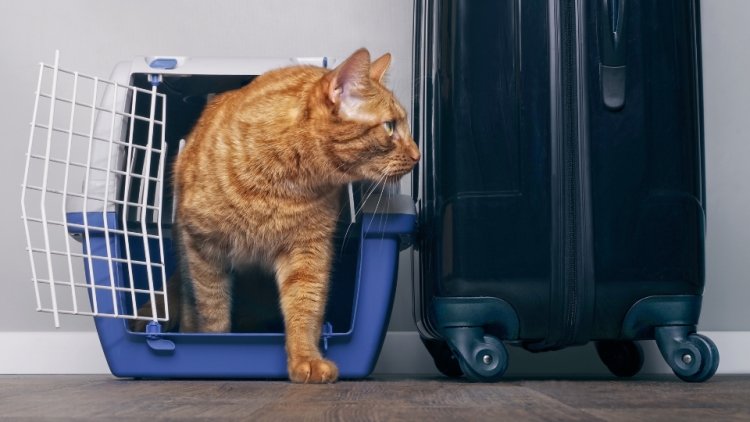
Pet Travel Insurance: Everything You Need To Know
Traveling with pets can be enjoyable, but it can make trip preparation a bit more complicated. There is a lot to consider every step of the route, including the safety of your pet. Pet travel insurance covers the loss, injury, or death of your pet during a trip.
What is pet travel insurance?
Covers the loss, injury, or death of your pet while traveling from Point A to Point B. These plans, often known as pet transport or pet taxi insurance, provide liability coverage for businesses that provide transport, shipment, and delivery services for pets traveling without their owners.
If you are transporting your pet by land, air, or sea, you should strongly consider purchasing pet travel insurance due to significant health hazards. Transportation on the ground is safer for traveling pets than traveling as air cargo, however, the following difficulties are frequent in any setting:
- Travel sickness
- Increased levels of tension
- Accidental injuries
- Heat exhaustion
- Hypothermia
Before transporting your pet, be sure the carrier is licensed and offers $100 to $500 per pet in travel insurance. If you’re flying with your pet, be aware that airline restrictions differ. Some parties can limit their liability to checked luggage, which is $3,330 for domestic flights.
Note that these fictitious amounts indicate the highest sum you could get in the event of an injury or death to your pet during travel. Not covered by travel insurance are sick pets or natural illnesses that may arise during traveling. Neither do these plans cover ongoing health issues resulting from a mid-transport incident that occurs later.
A standard pet insurance policy would be required for comprehensive and long-lasting coverage.
Read More: Where to Leave a Cat While on Vacation?
How does pet insurance work when traveling?
If your pet insurance includes travel coverage, you may be reimbursed for veterinary expenditures paid while you are away from home, providing the service was not related to a pre-existing condition.
Unless your carrier supports Vet Direct Pay, the coverage will operate the same internationally and in other states:
- Pay for your own veterinarian care.
- Submit a bill for services covered
- The policy’s reimbursement rate is applied to payouts (assuming the deductible has been satisfied and the yearly maximum has not been reached).
Some carriers, such as ASPCA Pet Insurance, provide pets with additional travel benefits.
- Insurance for stolen or misplaced pet passports or health certificates
- Quarantine kennel fee coverage
- Promotional and reward coverage should your pet become lost or stolen.
- Availability of a nonstop pet hotline
Numerous insurance companies offer supplemental pet health policies that may reimburse the expenditures connected with acquiring a pet passport, such as the cost of a veterinarian exam, microchipping, and required vaccinations for dogs and cats.
Does pet insurance cover travel cancellations due to sick pets?
Some pet insurance providers, such as Pet Plan and Trupanion, pay for pet-related travel cancellations. Typically, the cancellation coverage will cover your travel fees if you are forced to cancel or shorten your vacation due to an emergency involving your pet.

How much is pet insurance for a flight?
Only corporations may receive pet travel insurance, therefore you must enroll in conventional coverage and pay a monthly fee. Dog insurance costs $49.51 and cat insurance costs $28.48 on average, depending on where you live and the coverage you choose.
Numerous individuals get pet travel insurance prior to their cat or dog’s unaccompanied flight, then cancel the policy upon arrival. If you intend to purchase pet insurance solely for a flight, you must investigate the cancellation policy to determine whether you will incur cancellation fees or receive a prorated refund of the monthly premium.
However, if you frequently travel with your four-legged friend, you may wish to preserve your pet insurance for future flights. By canceling and re-registering for each flight, you run the risk of having any pre-existing conditions your pet may develop excluded from your next policy. If anything relevant to the health problem occurred during travel, such as the stress of flying aggravating a pet’s heart condition, the pet would not be eligible for insurance coverage.
For pets going overseas, you’ll require a health certificate within 10 days of your journey, requiring a vet visit. If you want to be reimbursed for your pet’s foreign test fees and services, you must enroll well in advance. The insurance won’t take effect until the required waiting period has passed.








2 Comments